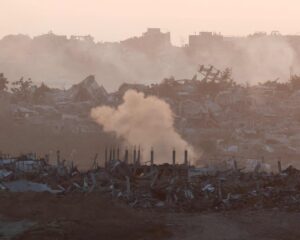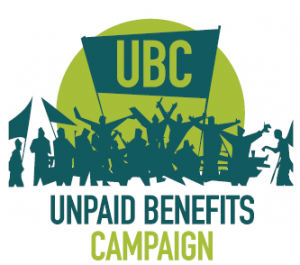The Competition Commission of South Africa has approved the sale of Clover to a consortium of companies led by Tel Aviv based Central Bottling Company. The General industry Workers Union of South Africa (GIWUSA) condemns this deal.
GIWUSA will be attending the pre-hearing of the Competition Tribunal on Friday, 2nd August 2019 to appeal to it not to sanction this sale.

Workers in South Africa stand in full solidarity with the people of Palestine who are living under the longest running military occupation in history. We support their ongoing struggle against Israeli apartheid and settler colonialism. It was South Africa’s very own architect of apartheid -Hendrik Verwoerd – that praises Israel in 1961 saying that “Israel, like South Africa, is an apartheid state.”
It is therefore astonishing for the Competition Commission to conclude in clause 1.9 that the merger does not raise any public interest concern.
The Israeli led consortium’s take over of Clover represents a deal with apartheid that cannot be tolerated. We received the solidarity of workers around the world that denounced such deals made by apartheid era businesses from South Africa. Today we are in a position to offer the same solidarity for those still living under such oppression.
We call on the Competition Commission of South Africa and the Competition Tribunal – to which the final decision has been referred – to consider the impact of such deals on the human rights of people living under apartheid; an apartheid that South Africans fought so hard to dismantle. This consideration should come far before any economic interests.
SA big business benefited from racism and worked with apartheid SA, we must stop them from benefiting from racism and working with apartheid again – this time Israeli apartheid.
Profiting from Occupied Lands
The CBC is complicit in severe human rights abuses due to its operations in Israeli settlements in the Occupied Palestinian Territory (OPT) and the Occupied Syrian Golan Heights. According to the Israeli research center Who Profits,[1] CBC’s operations in illegal settlements are as follows:
- “CBC holds a regional distribution center in the Atarot settlement industrial zone. The Atarot distribution center is responsible for marketing the company’s beverages to the Palestinian population of [occupied] East Jerusalem. Simultaneously, the Palestinian franchisee – The National Beverages Company (NBC) is denied access to East Jerusalem, which therefore constitutes a captive market for the Israeli distributor.”
- “In 2006 CBC purchased Tabor Winery – an Israeli winery that owns vineyards near Mount Shifon in the occupied Golan Heights. Grapes from the Shifon vineyards are used in Tabor’s white wines.
- “CBC also owns Tara (Milco Industries), whose subsidiary, Meshek Zuriel Dairy (81%), holds a dairy farm and a head office in the settlement of Shadmot Mehola in the Jordan Valley.”
Enabling Oppression
Israel has used the confiscated Palestinian and Syrian lands and resources to build new towns, military bases, industrial zones, nature reserves, highways, and other infrastructure for the benefit of Jewish-Israeli citizens. Palestinian residents and workers in the OPT – in addition to being dispossessed of their property and economic livelihoods – are denied access to and revenue from this infrastructure despite its location on their own territory, which they can only access if authorized by Israel’s discriminatory permit regime.
CBC’s own presence in Israeli settlements exemplifies the brutality of the occupation. For example, the Atarot settlement industrial zone – where a CBC distribution center is based – is located near the Qalandiya checkpoint, an oppressive military structure that severely restricts the movement of Palestinian people and goods. The checkpoint is a site of routine violence and humiliation by Israeli soldiers against Palestinians, including workers with permits. Atarot also lies beside Israel’s concrete separation wall, which in that area splits the neighborhood of Kufr ‘Aqab, the town of Al-Ram, and the city of Ramallah from Palestinian East Jerusalem.
In addition, the region of the Jordan Valley – where a CBC subsidiary owns a dairy farm and head office – is a fertile and strategic territory rich in natural resources that is held captive by the Israeli occupation and its settlements. Israel has pledged to keep the valley under Israeli sovereignty under any peace agreement as a ‘security necessity,’ which would completely envelop Palestinian areas under Israeli control. International institutions have repeatedly stated that Palestinian ownership over the valley is vital to boosting its people’s economic self-sufficiency and development, were it not for the continued entrenchment of the occupation.
South Africa’s Responsibility
Given these facts, South Africa has a special legal, political, and moral responsibility in holding CBC accountable for its crimes under the Israeli occupation. Israel’s settlement enterprise grossly violates the Fourth Geneva Convention, which stipulates that an occupying power cannot exploit natural resources for its own gain and must use economic production in the territories for the welfare and development of the local inhabitants. The daily oppressions imposed on all Palestinians further breach numerous international humanitarian and human rights laws, including the International Covenant on Civil and Political Rights (ICCPR).
It is therefore incumbent upon all South Africans – its citizens, its government, its unions, its companies, and institutions like the Competition Tribunal and others – to practice effective solidarity with the Palestinian people and to ensure accountability for Israel’s systematic abuses of Palestinian rights, including by ending corporate complicity in Israel’s occupation.
Further the Competition Commission endorsed the merger notwithstanding the intention of Clover and Milco to retrench 516 employees. It will make no difference that such retrenchment can only occur in year three of the merger. These retrenchments will come as the result of the completion of a restructuring exercise named, Project Sentillo. To endorse the retrenchment of 512 employees in a context where unemployment in our country has reached crisis proportion is highly irresponsible. Maybe the Competition Commission was misled by the merging parties when they indicated that 550 new permanent employment positions will be created through the expansion of the Project Masakhane. The latter is nothing but a project of cheap labour. Employees in the Project Masakhane do not enjoy the same benefits as the permanently employees, the salaries are different, and they constantly reminded that the are not part of Clover. Basically what is being done here is that the swopping of 512 permanent employees with cheap labour.
Moreover, the Unions have never been informed of the Project Sentillo. From experience when employers undertake major restructuring with massive job losses as a consequence can only mean work intensification, work overload, long hours for the remaining employees.
We call on the Competition Tribunal not to sanction this merger.


